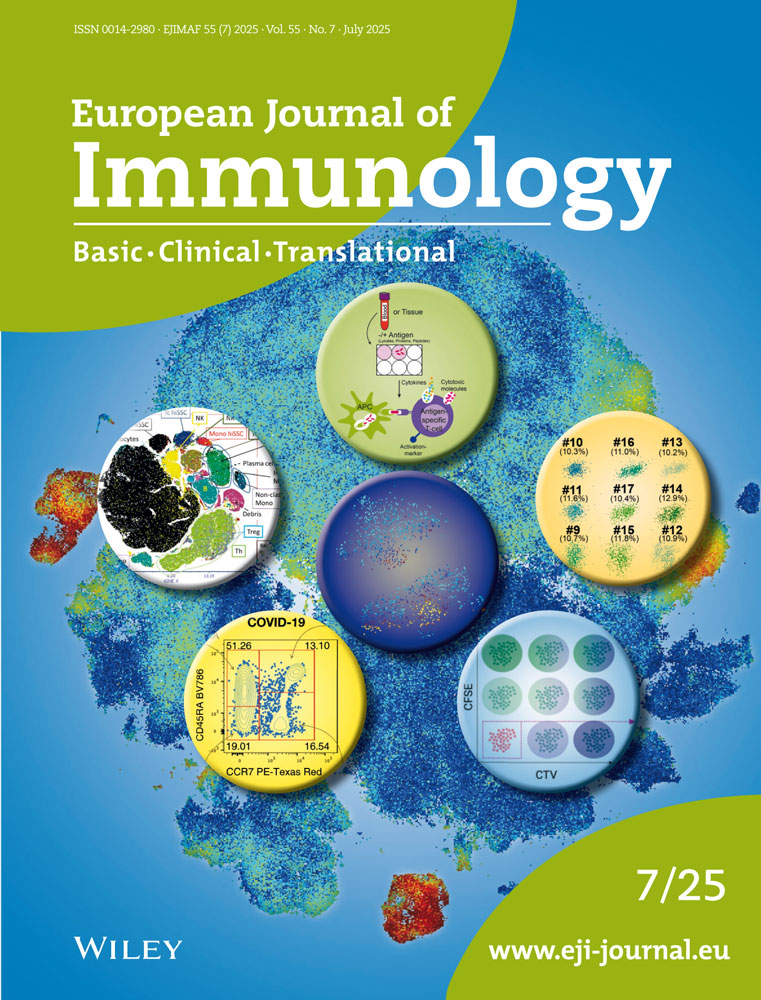Viral superantigen-induced hyporesponsiveness of T cells and polyclonal B cell activation in HIV-1 infection
Abstract
The mechanisms of CD4 depletion and hyporesponsiveness during human immunodeficiency virus (HIV) infection are still unknown. Given the ability of superantigens to stimulate a higher number of lymphocytes than conventional antigens, they may play a major role in this process. Recently, a novel superantigen, the rabies virus nucleocapsid (NC), was described in humans. In the present work, we tested the responses of peripheral blood lymphocytes from asymptomatic HIV-infected patients to this superantigen. In contrast to its effect in normal controls, NC failed to expand T cells from HIV-infected individuals expressing the Vβ8 family, and induced a strong decrease in the response to CD3 activation. This absence of response was not the consequence of programmed cell death, and was explained by an anergic state induced by the superantigen. NC superantigen was also able to induce polyclonal activation of B cells, as measured by the secretion of anti-HIV antibodies and autoantibodies. Moreover, Vβ8 depletion experiments showed that induction of autoantibody secretion was Vβ8 dependent, whereas secretion of HIV-1 antibody was not. Interleukin secretion studies showed that NC was able to induce high levels of interleukin-4 and interleukin-10. Taken together, our results suggest a role for exogenous viral superantigens such as NC in the induction of T cell hyporesponsiveness and polyclonal B cell activation during HIV infection. The induction of a Th2 response and the role of these superantigens in the immunopathogenesis of acquired immunodeficiency syndrome are discussed.




